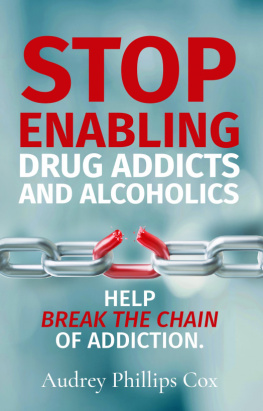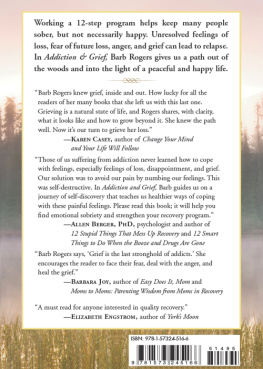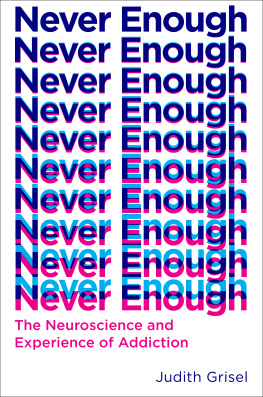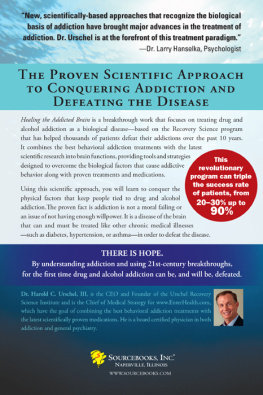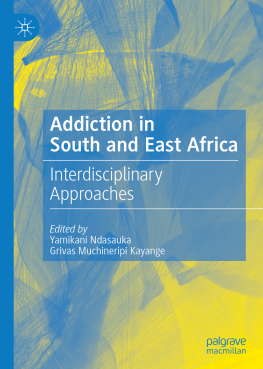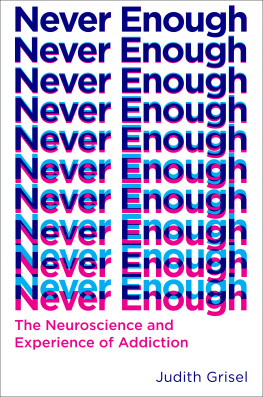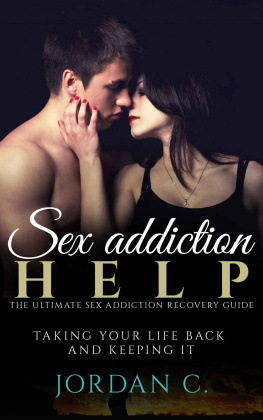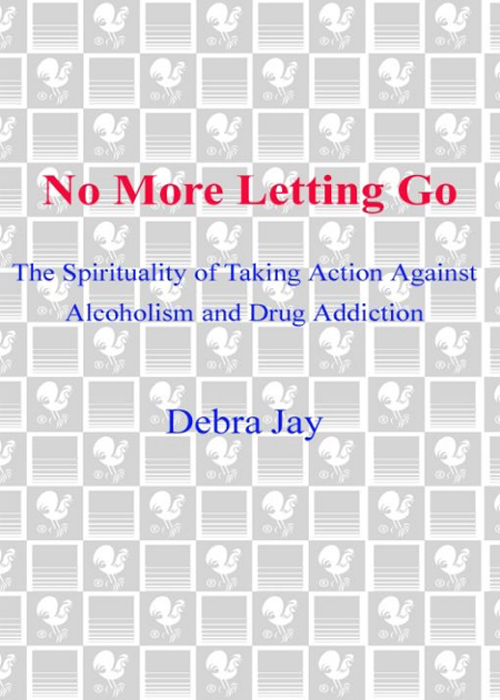
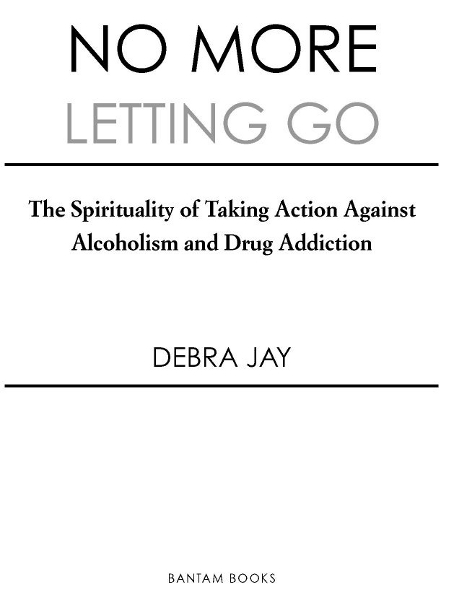
Table of Contents
FOR JEFF
Go where your best prayers take you. Unclench the fists of your spirit and take it easy. Breathe deeply of the glad air and live one day at a time. Know that you are precious... and learn to trust.
FREDERICK BUECHNER
An exciting, cutting-edge book that will inspire families to know and act from a place of courage and powerallowing them to step outside the shadow of addiction, reclaim their lives, and effectively intervene with their loved ones.
CLAUDIA BLACK, author of It Will Never Happen to Me
Passionate, original, and thought-provoking,No More LettingGo is a must-have book for families and friends of addicted people. This book will save lives.
KATHERINE KETCHAM, author of Beyond the Influence
Poignant and impactful, this scientifically-based book will bring healing and life to many families.
DR. BARBARA KRANTZ, Chief of Medical Services, The Hanley Center
A clear and empowering call to effective action. No More LettingGo provides wisdom, hope, and help for those who may not have known they have choices.
JERRY A. BORISKIN, PH.D., author of PTSD and Addiction
An excellent resource for friends and family members to help them understand the diseases of alcoholism and drug addiction so that they may help someone they love.
BOB LAPRAD, Director, National Catholic Council on Alcoholism
No More Letting Go should be required reading for all individuals and families affected by addiction. That probably includes just about everyone.
THOMAS MARTIN, M.D., Medical Director, the Crossroads Centre
A wonderful, compassionate, and hopeful book about one of modern lifes most baffling and powerful disorders: addiction.
ROBERT L. DUPONT, M.D., author of The Selfish Brain
Debra Jay combines information collected from her own experience with the most recent findings in psychology, psychiatry, medicine, and neurophysiology to produce a book that could and should become the standard work in the field of intervention.
GEORGE MANN, M.D., founder of The Retreat
A powerful call to action... zero tolerance for untreated addiction. Debra Jay provides a clear, gentle, and compassionate path based on love and respect.
JERRY MOE, national director of Childrens Programs, Betty Ford Center
If you are trying to get a person you love and care for into treatment and recovery, this book will all but guarantee success. I am especially impressed with its quiet yet insistent emphasis on the necessity of understanding that every human being has a spiritual dimension.
MEL SCHULSTAD, past president and cofounder, The National Association of Alcoholism and Drug Abuse Counselors
ACKNOWLEDGMENTS
I WOULD LIKE to express my gratitude to the following people: Sandy Peddicord for suggesting I write another book. My agent, Jane Dystel, for making it happen. My editor, Toni Burbank, for her wisdom and kindness.
Id also like to thank several good friends and colleagues for their support and help: Nancy Solak, Dr. Jerry Boriskin, Lori Forseth Koneczny, Michael J. Smith, and PJ McSweeney. My deepest appreciation goes to my dear husband, Jeff Jay, who gave patient and unending support as well as some good suggestions.
INTRODUCTION:
IT TAKES A FAMILY
THERE WAS A TIME when drunk driving was fairly acceptable behavior. Bars provided drinks in plastic to go cups to take in the car. Repeat offenders still held valid drivers licenses, no one ever heard of a designated driver, and friends regularly let friends drive drunk. Getting caught resulted in little more than a slap on the wrist. Then two mothers, whose children were victims of drunk drivers, began an organization called MADD (Mothers Against Drunk Drivers) and convinced the nation that driving while intoxicated was unacceptable. Today, we are much safer on the road because of the passion of these mothers. Now we must go a step further and contend with addiction in our families, so we can live happier, healthier, and more secure lives in our homes.
Having worked for years with alcoholics, addicts, and their familiesand growing up with alcoholism among my own relativesI have come to a profound realization: Addictionmust be denied a place in our families. I think we have all been told that we must wait until alcoholics and addicts want help, but we also know that wanting help can take years or never happen at all. In the meantime, we pay a dear price for addictions right to exist in our families unchallenged. This book is about the spiritual act of saying no to addiction. Letting go is often misunderstood to mean we are to do nothing. When I say nomore letting go, I am saying that we must never let go of our right to take positive action against this destructive disease. Instead, we must let go of those things that block our ability totake action. When families make a commitment to work together in love, a power they didnt know they possessed emerges. They gain tremendous influence, becoming highly effective at motivating alcoholics and addicts to accept help. When taking the right kind of action, the well-being of families begins to take precedence over the will of addiction.
A few years ago, I wrote a book titled Love First: A NewApproach to Intervention for Alcoholism & Drug Addiction. I wanted to give families who were ready to take action access to a detailed road map showing them how to intervene. Since then, Ive talked to people who tell me their families are having difficulty making the decision to do something. They cant move forward. When a family is hesitant or wavering, it usually means they dont have enough information. No More Letting Go presents families with what they need to move from uncertainty to a place of clear and definite decision-making. No More LettingGo then provides a number of specific ways to help addicted loved ones, giving families the latitude to select a method that best suits their individual situation.
Once we decide that untreated addiction is as unacceptable as drunk driving, we will begin addressing the problem differently. Imagine a time when it will be unthinkable not to intervene when someone we love becomes addicted to alcohol or other drugs. Ignoring a friend or relatives addiction will feel as wrong as handing car keys to someone who is stumbling drunk. No longer will we enable the disease; instead we will put a stop to it by initiating recovery. We will be able to depend on most everyone to help us, because almost no one will find it tolerable to support ongoing addiction. Those who become addicted will get help years or even decades sooner, and families will escape endless days of anguish and distress. Small children will know they can depend upon nonaddicted family members to protect them from the pain of growing up in alcoholic homes.
Family is our springboard into life. If our family life is robust and healthy, we have a head start on the world. But when addiction distorts and twists our households, we begin at a disadvantage. The longer we are subjected to another persons addiction, the more we change and the farther we diverge from the world of the well-adjusted. We cannot sacrifice the sanctity of our lives to the rapacious nature of addiction. We are given only one life to live, and it is precious. Each of us, including the addicted person, has a responsibility to stop addiction from stealing away with the best of our lives.
Next page

